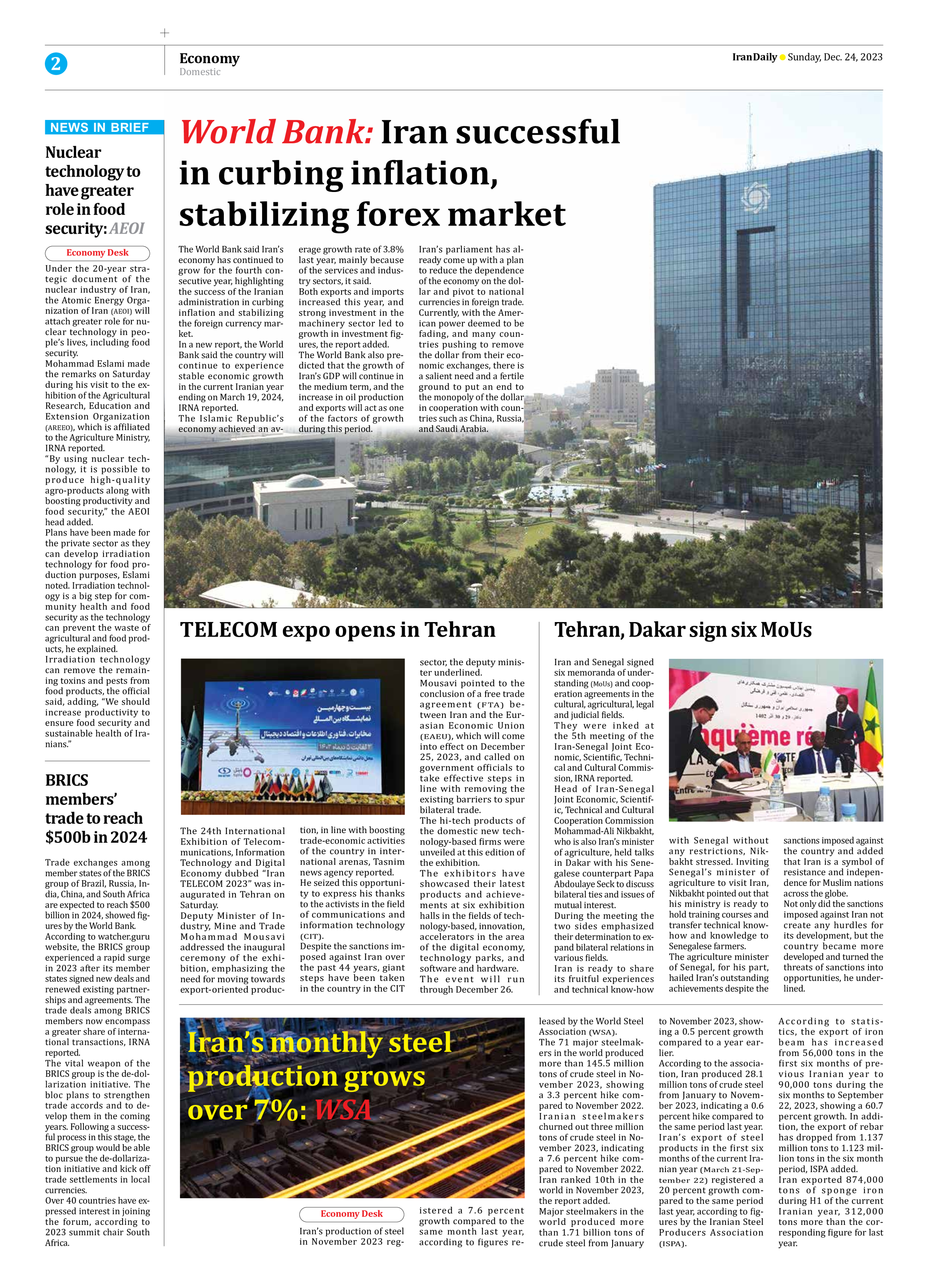
News in Brief
Nuclear technology to have greater role in food security: AEOI
Under the 20-year strategic document of the nuclear industry of Iran, the Atomic Energy Organization of Iran (AEOI) will attach greater role for nuclear technology in people’s lives, including food security.
Mohammad Eslami made the remarks on Saturday during his visit to the exhibition of the Agricultural Research, Education and Extension Organization (AREEO), which is affiliated to the Agriculture Ministry, IRNA reported.
“By using nuclear technology, it is possible to produce high-quality agro-products along with boosting productivity and food security,” the AEOI head added.
Plans have been made for the private sector as they can develop irradiation technology for food production purposes, Eslami noted. Irradiation technology is a big step for community health and food security as the technology can prevent the waste of agricultural and food products, he explained.
Irradiation technology can remove the remaining toxins and pests from food products, the official said, adding, “We should increase productivity to ensure food security and sustainable health of Iranians.”
BRICS members’ trade to reach $500b in 2024
Trade exchanges among member states of the BRICS group of Brazil, Russia, India, China, and South Africa are expected to reach $500 billion in 2024, showed figures by the World Bank.
According to watcher.guru website, the BRICS group experienced a rapid surge in 2023 after its member states signed new deals and renewed existing partnerships and agreements. The trade deals among BRICS members now encompass a greater share of international transactions, IRNA reported.
The vital weapon of the BRICS group is the de-dollarization initiative. The bloc plans to strengthen trade accords and to develop them in the coming years. Following a successful process in this stage, the BRICS group would be able to pursue the de-dollarization initiative and kick off trade settlements in local currencies.
Over 40 countries have expressed interest in joining the forum, according to 2023 summit chair South Africa.







